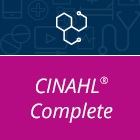Nursing & Health Sciences Research Journal
Abstract
Background: Low-molecular-weight heparin (LMWH) is a commonly used anticoagulant for treatment of venous thromboembolism (VTE). Routine monitoring of therapeutic effects through anti-Xa levels is not recommended but may be beneficial in patients with altered pharmacokinetics.1,2 Inappropriate monitoring leads to excessive testing and premature dose adjustments, compromising safety and efficacy. The purpose of this project was to assess appropriateness of monitoring LMWH anti-Xa levels and identify opportunities to optimize utilization within a community health system.
Methods: A random-sample, retrospective chart review at a multi-site hospital system was conducted over a 3-year period. Inclusion criteria were adults admitted with at least one anti-Xa level resulted. Primary outcomes consisted of anti-Xa level indication and corresponding dose adjustments. Secondary outcomes included anti-Xa levels ordered at the appropriate time window and incidence of adverse events after dose adjustments.
Results: Only 28% (61/220) of patients reviewed had an appropriate indication for LMWH anti-Xa level monitoring. Of the 49 patients warranting dose adjustments, 92% received appropriate adjustments. Anti-Xa levels were drawn after the third therapeutic dose in 146 patients with 84 drawn 3-5 hours post-dose. Four patients had documentation of bleeding and 1 patient had thrombosis following inappropriate dose adjustments, compared to no reported events following appropriate adjustments.
Conclusion: Appropriate LMWH anti-Xa monitoring in patients with altered pharmacokinetics resulted in justified dose adjustments and ensured therapeutic concentrations were attained. In patients with appropriate monitoring and dose adjustments, no adverse events were noted. The results of this project will be reviewed utilizing a multi-disciplinary approach to develop a LMWH anti-Xa level monitoring protocol
Recommended Citation
Quesep, N., Menendez, L. R., Dittmar, E., Gopalani, R. B., Patel, P., & Nagalla, S. (2022). Evaluation of Anti-Factor Xa Level Usage for Low Molecular Weight Heparin in a Healthcare System. Nursing & Health Sciences Research Journal, 5(1), 28-36. https://doi.org/10.55481/2578-3750.1128


